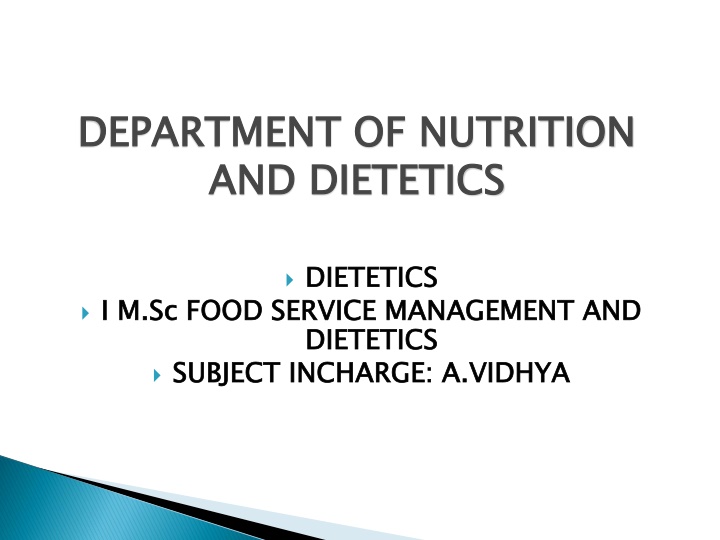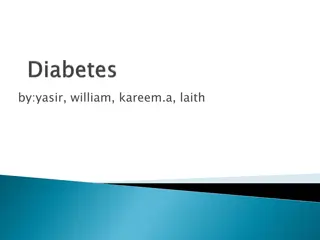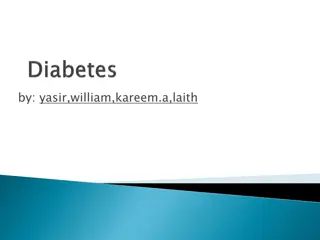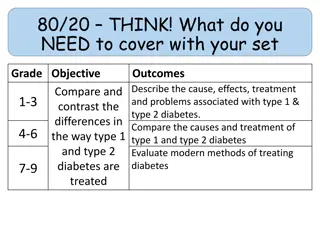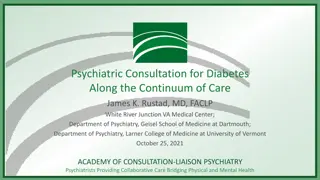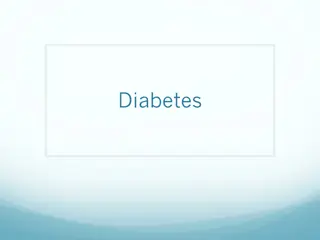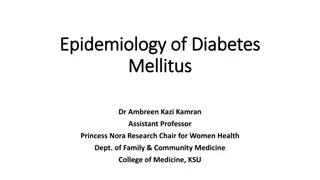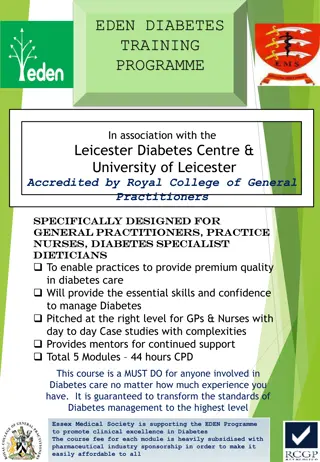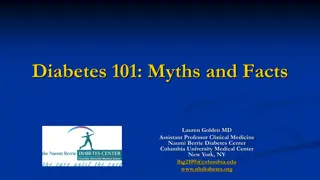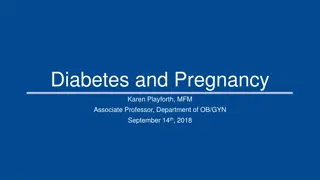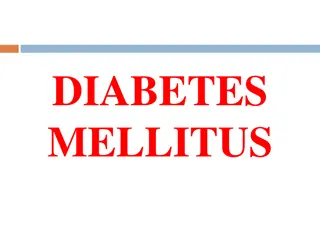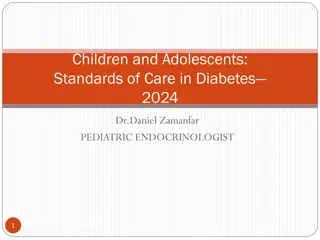Diabetes: Causes, Symptoms, Types
Diabetes mellitus is a metabolic disease that affects blood sugar levels. It can lead to various health complications if left untreated. Learn about the causes, symptoms, and types of diabetes to better manage the condition.
Download Presentation

Please find below an Image/Link to download the presentation.
The content on the website is provided AS IS for your information and personal use only. It may not be sold, licensed, or shared on other websites without obtaining consent from the author.If you encounter any issues during the download, it is possible that the publisher has removed the file from their server.
You are allowed to download the files provided on this website for personal or commercial use, subject to the condition that they are used lawfully. All files are the property of their respective owners.
The content on the website is provided AS IS for your information and personal use only. It may not be sold, licensed, or shared on other websites without obtaining consent from the author.
E N D
Presentation Transcript
DEPARTMENT OF NUTRITION AND DIETETICS DEPARTMENT OF NUTRITION AND DIETETICS DIETETICS DIETETICS I M.Sc FOOD SERVICE MANAGEMENT AND DIETETICS SUBJECT INCHARGE: A.VIDHYA I M.Sc FOOD SERVICE MANAGEMENT AND DIETETICS SUBJECT INCHARGE: A.VIDHYA
Diabetes mellitus, commonly known as diabetes is a metabolic disease that causes high blood sugar. The hormone insulin moves sugar from use the insulin it dose blood into your body either doesn t make enough insulin or can t effectively use the insulin it dose make. Untreated high blood sugar from diabetes can damage your nerves, eye, kidney and other organ.
Type 1 diabetes is an autoimmune disease. The immune system attacks and destroys cells in the pancreas, where insulin is made. It s unclear what causes this attack. About 10 percent of people with diabetes have this type.
Occurs when your body becomes resistant's to insulin, and sugar builds up in your blood. Prediabetes Prediabetes Occurs when your blood sugar is higher then normal, but it s not high enough for diagnosis of the type 2 diabetes Gestational diabetes Is high blood sugar during pregnancy.insulin blocking harmones produced by the placenta causes this type of diabetes.
Increased hunger Increased thirst Weight loss Frequent urination Blurry vision Extreme fatigue Sores that don t heal Erectile dysfunction. Urinary track infections.
The immune system mistakenly attacks and destroys insulin producing beta cells in the pancreas Genetic problems Obese Carrying extra weight especially in your belly Over weight Hormonal changes during pregnancy Hormonal problems during placenta
Type 1 diabetes you are more likely to get type 1 diabetes if you are child or teenager you have a parent or sibling with the condition, or you carry certain gene that are linked to the disease. Type 2 diabetes: Over weight Age 45 or older Physically aren t active Have had a gestational diabetes
Have high blood pressure, high cholestrol or high triglycerides
Over weight Are over age 25 Have a family history of type 2 diabetes Have polycystic ovary syndrome(PCOS)
Heart disease, heart attack and stroke Neuropathy Nephropathy Retinopathy Vision loss Hearing loss Foot damage such as infections and sores that don t heal Skin conditions such as bacterial and fungal infection
Depressions dementia Premature birth Higher than normal weight at birth Low blood sugar Jaundice Still birth
Insulin is the main treatment for type 1 diabetes Rapid acting insulin Short acting insulin Intermediate acting insulin Long acting insulin
Alpha-glucosidase inhibitors Biguanides DPP-4 inhibitors Glucagon like peptides
Starchy or sugary foods make blood sugar level rise rapidly so the patient have consume protein foods Limited amount of carbohydrates will be taken Take more of green leafy vegetables daily Fruits Vegetables Whole grains
Lean protein such as poultry and fish Healthy fats such as olive oil and nuts
